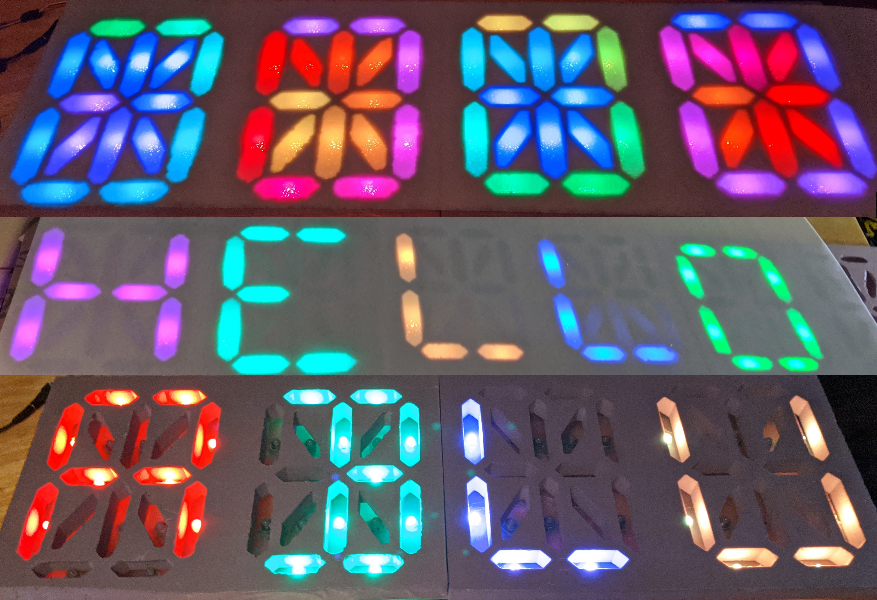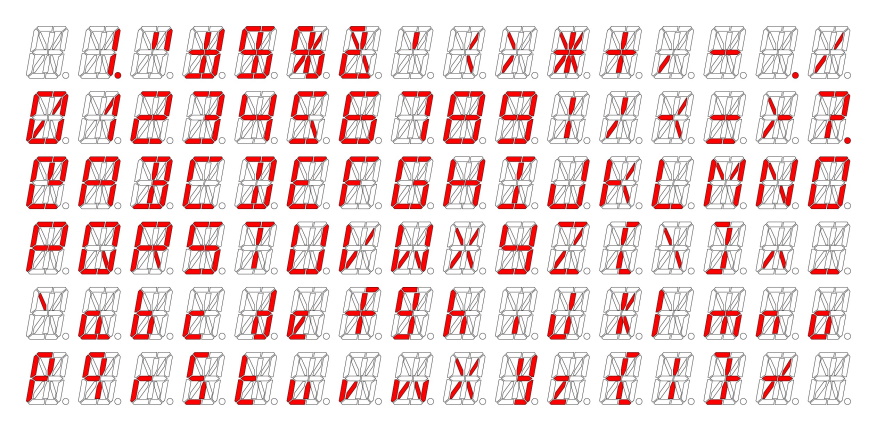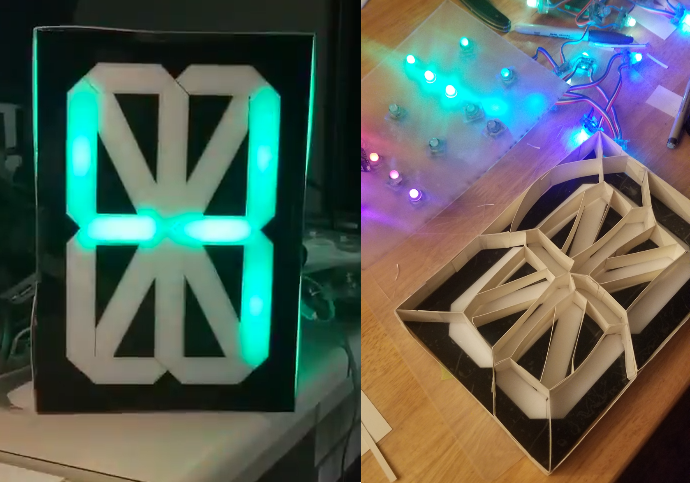(2019) Illuminated Stained Glass Sixteen Segment Display

I have always been fascinated by segmented displays. Maybe it that I came from a time that most display on microwaves, stoves, clocks were all segmented display. It reminds me of a simpler time.
There are several different types of segmented displays. Each with a different amount of segments 7, 9, 14, 16 or a different organization of the segments.

The advantage of a 16 segment display is that you can display a full set of alphanumeric, lower and upper case of numbers and letters.

My first version I made, I used paper divers to separate the different segments. But I could never get the paper to be in perfect lines.

The results were not great. It also took a lot of time to make the paper folded segments. The cost of the white and black sandwiched acrylic was prohibited. It would have been a daunting task to make more than a few of these. I ended up shelving this idea for a few months.
After I built the illuminated Stained Glass Tetragonal Trapezohedron using the new foam method. I decided to try and use this new method to make a series of sixteen segmented displays.
A foam center was cut using a Inventables X-Carve. The foam separates the light from bleeding from one pocket/cell to another. An acrylic top plate was added as a diffuser.

Cheaper, and easier to make. I was able to make an 8 digit display, with scrolling text. I wrote some firmware to print tweets, show the time, and make colorful patterns.
All source code files, firmware, etc can be found here on my github repo segmented-display
I designed the panels using Fusion-360. I used a ESP8266 ( Wemos D1 mini ) to control the LEDS. The parts to make this project cost ~$300 CAD. (LEDs, controller, foam, acrylic, glue)
